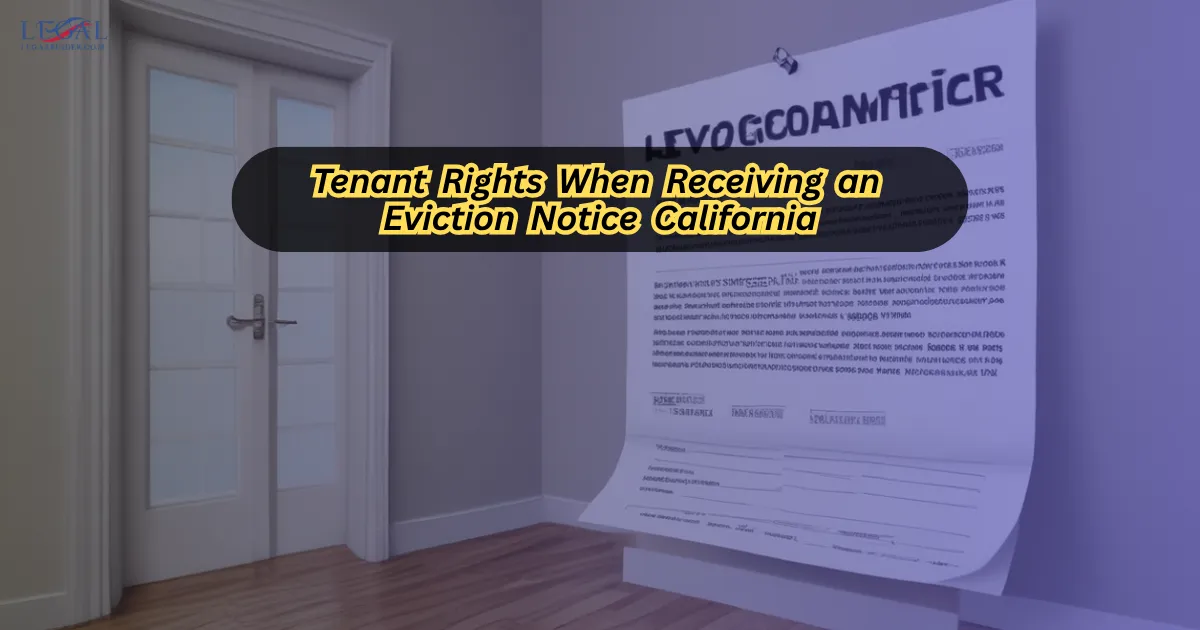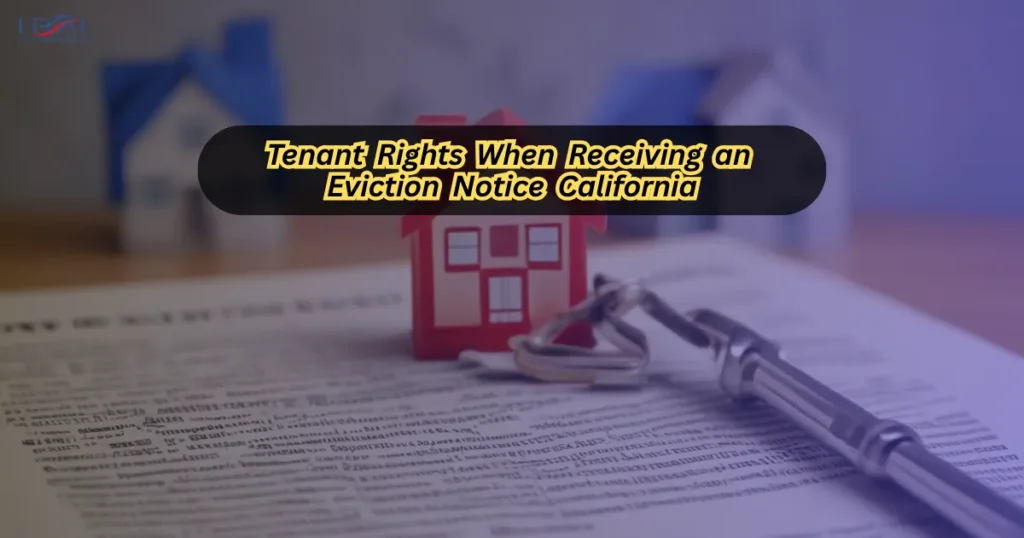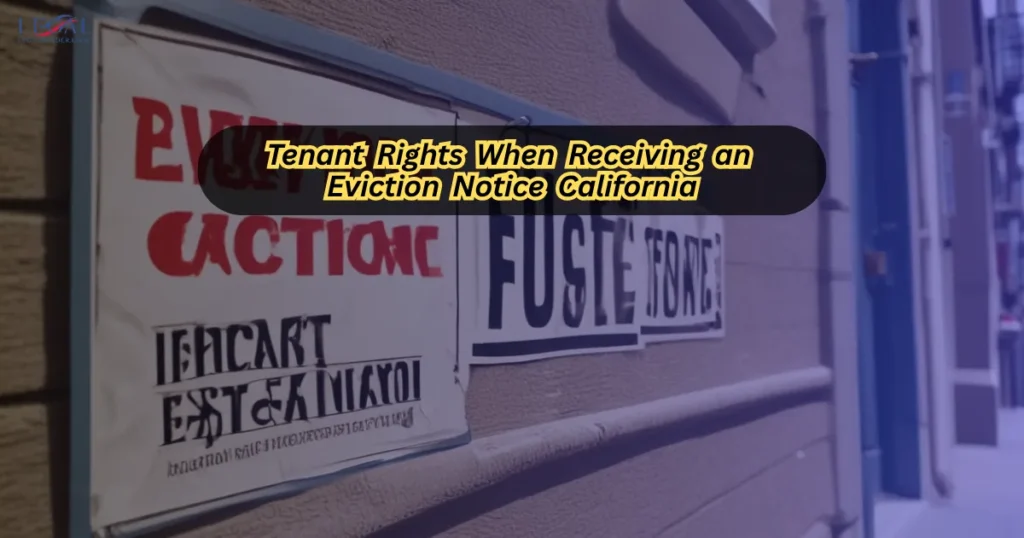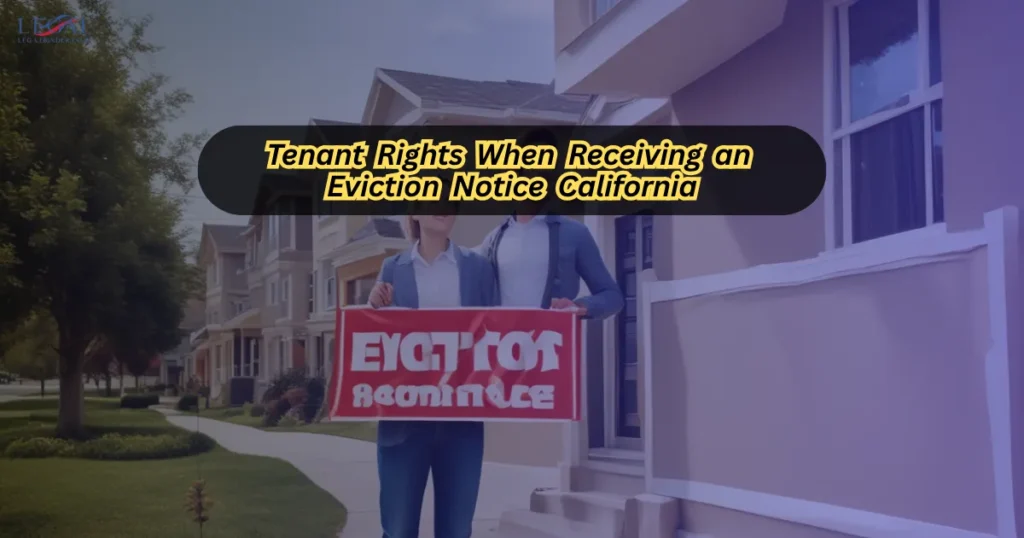Physical Address
304 North Cardinal St.
Dorchester Center, MA 02124
Physical Address
304 North Cardinal St.
Dorchester Center, MA 02124

Tenant rights when receiving an eviction notice California are critical to understand—because they can mean the difference between keeping your home or losing it prematurely. In California, eviction laws are detailed, tenant protections are strong, and landlords must follow very specific procedures to legally remove someone from a property.

Imagine this: you’re sitting at your kitchen table, sipping coffee, when you notice a paper slipped under your door. It’s an eviction notice. Your heart races, questions flood your mind—Do I have any rights? Can I fight this? Is my landlord even allowed to do this? In that moment, knowing your rights and the legal process becomes your most powerful defense.
This guide will walk you through everything you need to know about your protections under California law when faced with an eviction notice. We’ll break down the legal requirements your landlord must meet, the different types of notices, timelines, and exactly what actions you can take to safeguard your home.
For more comprehensive tenant-landlord legal resources, visit our homepage or explore our California Eviction Law Resource Hub for additional guides and templates.
California’s eviction process is regulated by the California Civil Code and the California Code of Civil Procedure. Your landlord must follow these laws precisely—otherwise, the eviction may be illegal.

Can my landlord evict me without giving proper notice?No. Proper notice and due process are required under California law.Can I stop an eviction after receiving notice?Yes, in many cases—by paying owed rent or fixing lease violations within the notice period.What if my landlord ignores eviction laws?You can challenge the eviction in court and may have grounds for legal action against the landlord.Do rent-controlled areas have additional protections?Yes. Cities like Los Angeles and San Francisco have stronger tenant protections and extended timelines.

Facing an eviction notice in California is stressful, but knowing your tenant rights allows you to make informed decisions and defend your home. By understanding the law, responding promptly, and seeking legal guidance, you can navigate the eviction process with confidence.
Evictions can happen quickly, so act decisively. Read your notice, know your rights, and get help when you need it—it’s the best path to a positive resolution.
For more California landlord-tenant law guides and eviction defense tips, visit our home page now.